Jeep Avenger vs MG MG5 – Which one offers the better deal?
Both models have their strengths – but which one suits you more?
Compare performance, efficiency, price and space directly: Jeep Avenger or MG MG5?
Costs and Efficiency: Price and efficiency are key factors when choosing a car – and this is often where the real differences emerge.
Jeep Avenger has a noticeable advantage in terms of price – it starts at 21900 £, while the MG MG5 costs 30400 £. That’s a price difference of around 8478 £.
In terms of energy consumption, the advantage goes to the Jeep Avenger: with 15.50 kWh per 100 km, it’s to a small extent more efficient than the MG MG5 with 17.50 kWh. That’s a difference of about 2 kWh.
Range is almost identical – both manage about 400 km on a single charge.
Engine and Performance: Power, torque and acceleration are the classic benchmarks for car enthusiasts – and here, some clear differences start to show.
When it comes to engine power, the MG MG5 has a a bit edge – offering 177 HP compared to 156 HP. That’s roughly 21 HP more horsepower.
In acceleration from 0 to 100 km/h, the MG MG5 is slight quicker – completing the sprint in 8.30 s, while the Jeep Avenger takes 9 s. That’s about 0.70 s faster.
In terms of top speed, the Jeep Avenger performs barely noticeable better – reaching 194 km/h, while the MG MG5 tops out at 185 km/h. The difference is around 9 km/h.
There’s also a difference in torque: MG MG5 pulls slight stronger with 280 Nm compared to 260 Nm. That’s about 20 Nm difference.
Space and Everyday Use: Cabin size, boot volume and payload all play a role in everyday practicality. Here, comfort and flexibility make the difference.
Both vehicles offer seating for 5 people.
In curb weight, Jeep Avenger is clearly perceptible lighter – 1180 kg compared to 1562 kg. The difference is around 382 kg.
In terms of boot space, the MG MG5 offers noticeable more room – 479 L compared to 380 L. That’s a difference of about 99 L.
In maximum load capacity, the MG MG5 performs barely noticeable better – up to 1367 L, which is about 90 L more than the Jeep Avenger.
When it comes to payload, Jeep Avenger minimal takes the win – 502 kg compared to 455 kg. That’s a difference of about 47 kg.
Who comes out on top?
Overall, the Jeep Avenger shows itself to be wins by a narrow margin and secures the title of DriveDuel Champion.
It convinces with the more balanced overall package and proves to be the more versatile choice for everyday use.
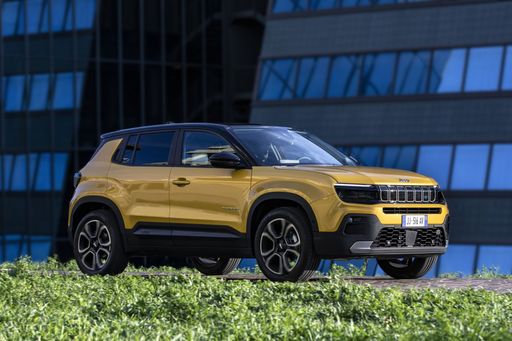
Jeep Avenger
Jeep Avenger
The Jeep Avenger is a compact SUV that brings a blend of rugged design and modern technology, making it ideal for both urban and off-road adventures. Its robust build and distinctive styling capture Jeep's iconic spirit while offering a comfortable and refined driving experience. With advanced safety features and a versatile interior, the Avenger caters to a wide range of drivers looking for practicality and excitement.
details @ Stellantis
@ Stellantis
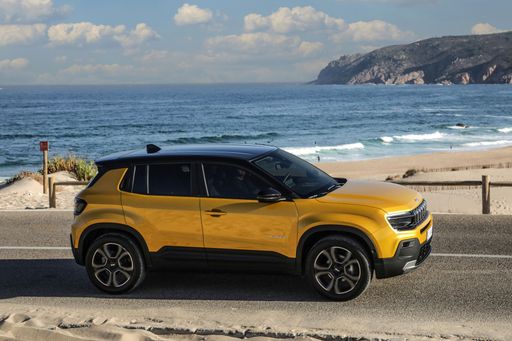 @ Stellantis
@ Stellantis
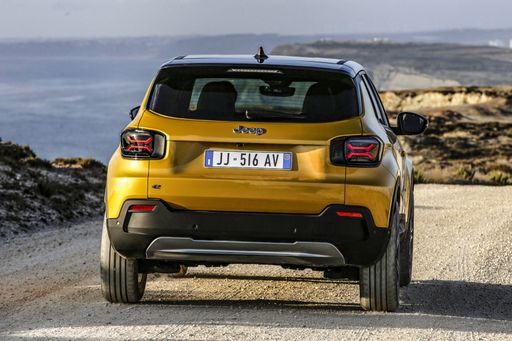 @ Stellantis
@ Stellantis
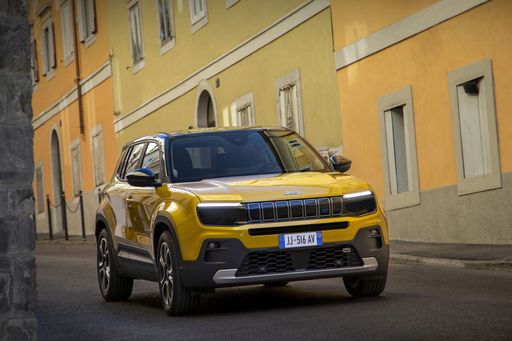 @ Stellantis
@ Stellantis
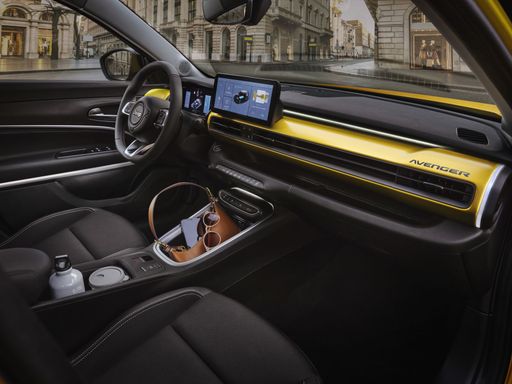 @ Stellantis
@ Stellantis
MG MG5
The MG MG5 stands out as a unique offering in the electric vehicle market, combining practicality with a spacious estate design. It provides an impressive balance between range and affordability, making it an attractive option for families and environmentally conscious drivers. The interior is thoughtfully designed, providing ample space and modern technology to enhance comfort and convenience on the road.
details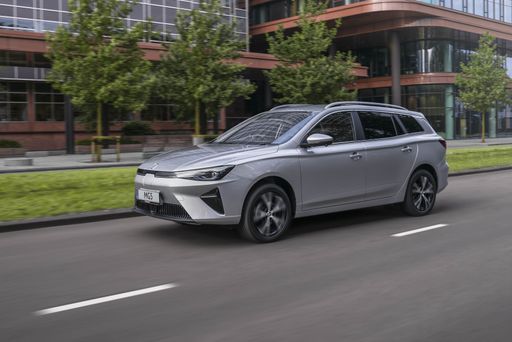 @ news.mgmotor.eu
@ news.mgmotor.eu
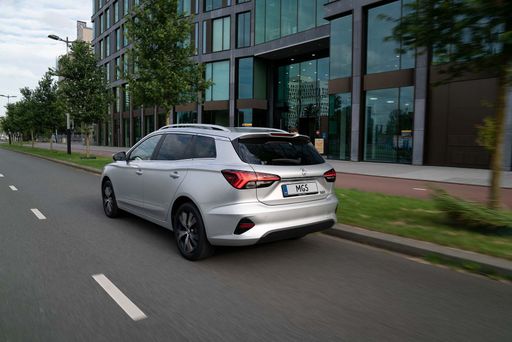 @ news.mgmotor.eu
@ news.mgmotor.eu
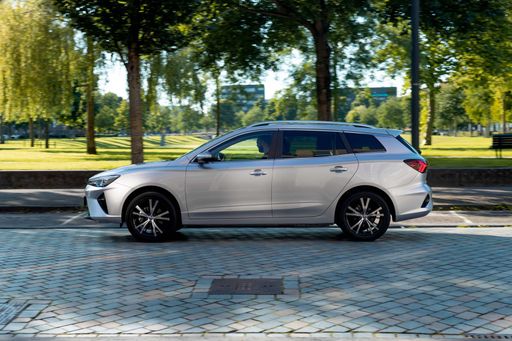 @ news.mgmotor.eu
@ news.mgmotor.eu
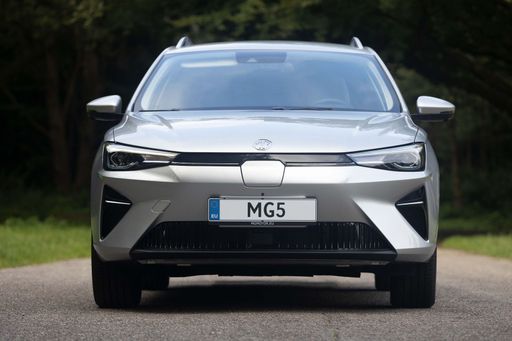 @ news.mgmotor.eu
@ news.mgmotor.eu
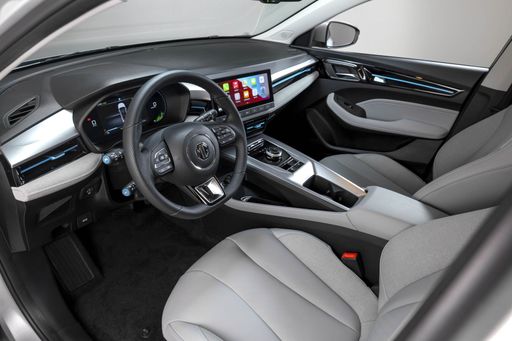 @ news.mgmotor.eu
@ news.mgmotor.eu

|

|
|
|
|
Costs and Consumption |
|
|---|---|
|
Price
21900 - 36900 £
|
Price
30400 - 34300 £
|
|
Consumption L/100km
4.9 - 5.7 L
|
Consumption L/100km
-
|
|
Consumption kWh/100km
15.50 kWh
|
Consumption kWh/100km
17.5 - 18.4 kWh
|
|
Electric Range
400 km
|
Electric Range
310 - 400 km
|
|
Battery Capacity
51 kWh
|
Battery Capacity
48.3 - 57.7 kWh
|
|
co2
0 - 129 g/km
|
co2
0 g/km
|
|
Fuel tank capacity
44 L
|
Fuel tank capacity
-
|
Dimensions and Body |
|
|---|---|
|
Body Type
SUV
|
Body Type
Estate
|
|
Seats
5
|
Seats
5
|
|
Doors
5
|
Doors
5
|
|
Curb weight
1180 - 1520 kg
|
Curb weight
1562 kg
|
|
Trunk capacity
325 - 380 L
|
Trunk capacity
479 L
|
|
Length
4084 - 4088 mm
|
Length
4600 mm
|
|
Width
1776 mm
|
Width
1818 mm
|
|
Height
1527 - 1541 mm
|
Height
1543 mm
|
|
Max trunk capacity
1218 - 1277 L
|
Max trunk capacity
1367 L
|
|
Payload
494 - 502 kg
|
Payload
455 kg
|
Engine and Performance |
|
|---|---|
|
Engine Type
Electric, Petrol, Petrol MHEV
|
Engine Type
Electric
|
|
Transmission
Automatic, Manuel
|
Transmission
Automatic
|
|
Transmission Detail
Reduction Gearbox, Manual Gearbox, Dual-Clutch Automatic
|
Transmission Detail
-
|
|
Drive Type
Front-Wheel Drive, All-Wheel Drive
|
Drive Type
Front-Wheel Drive
|
|
Power HP
100 - 156 HP
|
Power HP
156 - 177 HP
|
|
Acceleration 0-100km/h
9 - 10.6 s
|
Acceleration 0-100km/h
8.30 s
|
|
Max Speed
150 - 194 km/h
|
Max Speed
185 km/h
|
|
Torque
205 - 260 Nm
|
Torque
280 Nm
|
|
Number of Cylinders
3
|
Number of Cylinders
-
|
|
Power kW
74 - 115 kW
|
Power kW
115 - 130 kW
|
|
Engine capacity
1199 cm3
|
Engine capacity
-
|
General |
|
|---|---|
|
Model Year
2023 - 2025
|
Model Year
2022
|
|
CO2 Efficiency Class
A, D, C
|
CO2 Efficiency Class
A
|
|
Brand
Jeep
|
Brand
MG
|
What drivetrain options does the Jeep Avenger have?
Available configurations include Front-Wheel Drive or All-Wheel Drive.
The prices and data displayed are estimates based on German list prices and may vary by country. This information is not legally binding.
